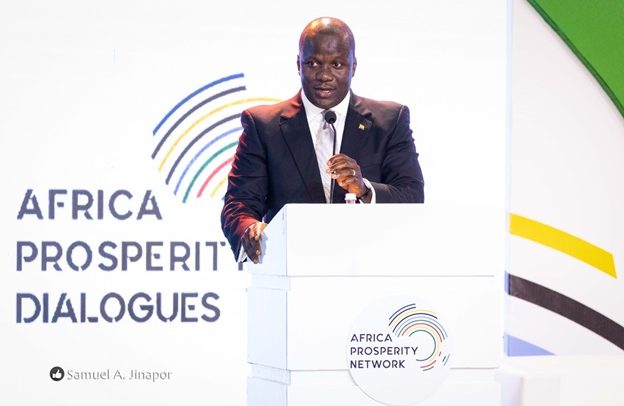Samuel A. Jinapor
THE MINISTER for Lands and Natural Resources and Caretaker Minister for Trade and Industries, Samuel A. Jinapor, has urged the private sector to own the AfCFTA Agenda to boost Intra-African trade.
The private sector, he said, would not only be the driving force of AfCFTA, but the primary beneficiary of the single market when Africa achieves the desired levels of inter-trade.
Mr. Jinapor was speaking at the closing of the Kwahu Summit on Africa’s Prosperity, organised by the African Prosperity Network (APN) in collaboration with The Presidency and the AfCFTA Secretariat.
While targeting the private sector, he noted that “We must drill down further to address the needs of micro, small, and medium-sized enterprises in our respective countries, as they contribute more than half of the continent’s Gross Domestic Product (GDP).”
Closing on the theme “AfCFTA: From Ambition to Action, Delivering Prosperity Through Continental Trade,” Mr. Jinapor indicated that the quality of presentations, the constructive exchanges, and active participation over the past two days, were clear testimonies of their collective desire to move from ambition to action, and to deliver prosperity through AfCFTA, for the “Africa We Want.”
He added that the discussions have shown that through public-private and multi-sectorial engagements, Africa could unblock the bottlenecks that hampered the full realisation of the single market agenda.
The Africa Prosperity Dialogues, the first of its kind in Ghana, was uniquely designed to offer a strategic and trusted annual platform to drive intra-African trade. It is a platform where the highest political and business decision makers in Africa discuss and come up with clear, actionable initiatives to enhance trade and prosperity in Africa, aligned with the AU’s Agenda 2063.
The three-day event brought together Ministers of State, Members of Parliament, Representatives of Regional Economic Communities, Business Executives and Associates, Technocrats, Women, Young Entrepreneurs, Civil Society Organisations (CSOs) and the media, to dialogue and proffer actionable solutions to boost Intra-African trade and Africa’s prosperity within the context of the African Union’s Agenda 2063.
By Jamila Akweley Okertchiri

